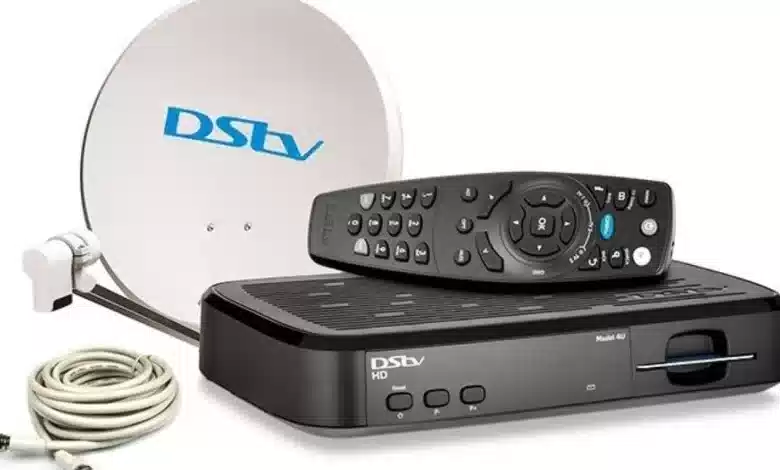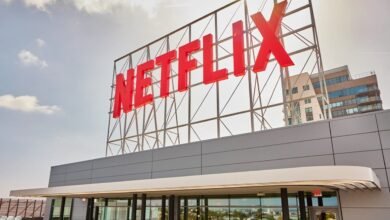DStv Hikes Prices for the Third Time in a Year – Here’s What You’ll Pay from November 2024
As more subscribers cut the cord due to rising costs, is DStv increasing prices to compensate for the loss of customers?

Pay television provider MultiChoice Kenya has once again announced a price increase for its DStv packages, effective 1st November 2024. This is the latest in a series of price hikes over the past two years, leaving many Kenyan households and businesses grappling with higher entertainment costs. With more affordable streaming options available online, the question remains: is DStv still worth the investment, or are consumers simply left with no alternative due to exclusive broadcasting rights and limited internet access?
A Recent History of DSTV Price Increases
For years, DStv subscribers in Kenya have faced regular price adjustments, with MultiChoice Kenya attributing these increases to the rising cost of doing business, the weakening of the Kenyan shilling against the US dollar, and growing operational expenses.
In March 2024, prices were raised by up to 6%, marking the third price increase in just 12 months. The latest hike effective November 2024 will see the following adjustments:
- Premium: KES 11,000 (up from KES 10,500 in April 2024, and KES 9,900 in 2023)
- Compact Plus: KES 6,800 (up from KES 6,500 in April 2024, and KES 6,200 in 2023)
- Compact: KES 3,900 (up from KES 3,700 in April 2024, and KES 3,500 in 2023)
- Family: KES 2,100 (up from KES 2,000 in April 2024, and KES 1,850 in 2023)
- Access: KES 1,350 (up from KES 1,300 in April 2024)
- Lite: KES 750 (up from KES 700 in April 2024)
These incremental rises, while seemingly small for some packages, are part of a broader trend that is significantly impacting household budgets.
DStv vs. Streaming: Is Pay TV Still Worth It?
The reality facing many DStv subscribers is that there are now cheaper alternatives to traditional pay TV. Streaming services such as Netflix, Showmax (ironically owned by MultiChoice), Amazon Prime Video, and more are all available at monthly rates that often undercut DStv’s premium packages. These services allow viewers to watch what they want, when they want, without being tied to a fixed schedule of programming. DSTV also has a streaming option, but it costs the same as the hardware option, and is limited to one person.
For instance, Netflix’s Premium plan in Kenya costs about KES 1,100 per month, which is a fraction of the DStv Premium package’s KES 11,000. While Netflix and other streaming platforms (apart from Showmax Mobile) do not offer live sports or certain local channels, they provide access to high-quality series, movies, documentaries, and kids’ shows, which appeal to many consumers looking for a personalized and flexible viewing experience.
In the era of affordable internet plans, streaming services have a clear advantage, especially for younger, tech-savvy audiences. The ability to download content, stream on-demand, and share subscription costs through family or friend accounts is enticing. But the real question is, why are millions of subscribers still sticking with DStv despite the recurring price increases?
The DStv Football Advantage: Exclusivity Holds Strong
For many Kenyans, the answer is simple: live football. DStv continues to hold exclusive rights to broadcast major football leagues such as the English Premier League (EPL), the UEFA Champions League, and various other European football competitions. These matches are not available on any streaming service in Kenya, which leaves passionate football fans with no choice but to maintain their subscriptions, particularly the Premium or Compact Plus packages.
Football is more than just entertainment for many Kenyan households; it’s a cultural experience. Watching live matches with family and friends has become a weekend tradition, and for those passionate about football, the cost is worth it. The price hikes, though frustrating, have not deterred die-hard fans from continuing their subscriptions, as long as they can access these exclusive sports events.
The Internet Conundrum: A Barrier for Many
Another critical factor keeping customers tied to DStv is the lack of unlimited, affordable internet access in many parts of Kenya. While urban centers have decent broadband infrastructure, many rural areas may still struggle with slow, expensive, or unreliable internet. For the middle class families without access to stable and affordable internet, DStv seems to be the only viable option for home entertainment.
Streaming requires both high-speed internet and uninterrupted connectivity – luxuries that one can argue are still out of reach for a significant portion of the middle class population. Even where internet access exists, the cost of reliable service that can support HD or 4K streaming may remain prohibitive for many families. Or the illusion of the same holds – especially since streaming companies restrict sharing to households.
Affordability Concerns: Is DStv Pricing Out Its Consumers?
While MultiChoice has long maintained that its price increases are justified due to economic pressures, the growing frequency of these hikes is raising concerns about the affordability of pay television. Many subscribers have had to downgrade to lower-tier packages or even cancel their subscriptions entirely due to financial strain. The continuous rise in costs threatens to price out even long-time customers, especially with ongoing economic challenges like high inflation, increased taxation, and currency devaluation.
It is clear that if the price trends continue at the current rate, DStv may risk alienating a substantial segment of its customer base. Even with exclusive sports rights, households might be forced to seek alternatives if the prices become unsustainable.
The Future of Pay TV in Kenya: Is Streaming Inevitable?
With the continued expansion of internet affordability and access in Kenya and the increasing availability of affordable streaming services – legal or not – the question is whether DStv can continue to hold on to its dominance. Unless there are improvements in the affordability of satellite TV, particularly in the face of stiff competition from streaming giants, the era of pay TV may be approaching its end.
For many Kenyans, streaming offers the flexibility, content variety, and affordability that pay TV once monopolized. But without reliable internet access and as long as DStv holds the exclusive broadcast rights to football, pay television may for a while, remain a staple for many middle class households.





